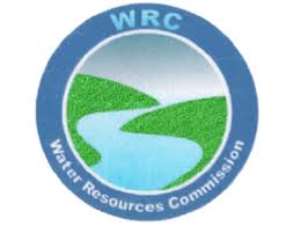
Accra, July 30, GNA - The Water Resources Commission (WRC) with sponsorship from the European Union (EU), is holding a stakeholder capacity building workshop on water quality monitoring and surveillance.
The workshop, which opened on Wednesday aims at raising awareness on the importance of water quality within the Ghanaian society and also ensure that people living around the catchment areas particularly around the Weija dam and beyond to control their activities to prevent excessive pollution of water bodies.
Participants were from Metropolitan, Municipal and District Assemblies (MMDAs) within the Ga District of the Greater Accra Region and other areas within the catchment area of the Weija dam, which include Nsawam-Adoagyiri community around the Densu River.
Mr Benjamin Ampomah, Executive Secretary of WRC, said water quality has for long been considered as a critical public health issue owing to the negative consequences of drinking contaminated water.
He cited the annual outbreak of cholera in the country and other water borne diseases, which often plague people who live in communities along water bodies.
He said others have suffered strange diseases and even death for drinking from contaminated hand dug wells that had been poisoned by leachates from underground waters.
Mr Ampomah said workshop is therefore part of the efforts under the EU capacity building in water quality monitoring and surveillance, to sensitise and empower the MMDAs to intensify their surveillance and monitoring roles to save the water bodies from the impact of negative human activities.
According to him a number of strategies have already been put in place in an attempt to tackle the issue of encroachment and water pollution, but little success have been achieved and therefore there is the need involve stakeholders in the fight.
Participants are expected to brainstorm on other innovative strategies and come out with workable proposed solutions to the current water problems in the country.
Ms Adwoa Paintsil, Water Quality Specialist at the WRC said water treatment is becoming increasingly expensive due to excessive pollution.
She said the EU project therefore seeks to increase the coverage of drinking water supply nationally with special emphasis on the urban poor who pay more for water supply services whilst receiving poor water quality.
In an address read on his behalf, Nii Laryea Afotey-Agbo, Regional Minister, called on communities within the region to embrace change, observe lay down rules and regulations regarding, building, construction works, quarrying, sand winning and waste disposals, to help minimise the rate of pollution of water bodies.
He said fast rate of urbanisation is a contributing factor to current massive encroachment of water bodies and urged institutions that have been tasked to manage the situation to intensify their efforts and surveillance, to prevent further havoc on these water bodies.
Similar problems seems to run through the presentations of the MMDAs on the issue of water quality and these include pollutions from waste disposal, negative activities of fish mongers, fishermen, quarrying and sand winning companies, as well as agricultural activities close to rivers bodies.
They propose among other things the fencing of buffer zones, empowerment of a taskforce to protect water bodies, monitoring and regulation of the activities of water tanker services and planting of more trees along river banks.
GNA




 Akufo-Addo commissions Phase II of Kaleo solar power plant
Akufo-Addo commissions Phase II of Kaleo solar power plant
 NDC panics over Bawumia’s visit to Pope Francis
NDC panics over Bawumia’s visit to Pope Francis
 EC blasts Mahama over “false” claims on recruitment of Returning Officers
EC blasts Mahama over “false” claims on recruitment of Returning Officers
 Lands Minister gives ultimatum to Future Global Resources to revamp Prestea/Bogo...
Lands Minister gives ultimatum to Future Global Resources to revamp Prestea/Bogo...
 Wa Naa appeals to Akufo-Addo to audit state lands in Wa
Wa Naa appeals to Akufo-Addo to audit state lands in Wa
 Prof Opoku-Agyemang misunderstood Bawumia’s ‘driver mate’ analogy – Miracles Abo...
Prof Opoku-Agyemang misunderstood Bawumia’s ‘driver mate’ analogy – Miracles Abo...
 EU confident Ghana will not sign Anti-LGBTQI Bill
EU confident Ghana will not sign Anti-LGBTQI Bill
 Suspend implementation of Planting for Food and Jobs for 2024 - Stakeholders
Suspend implementation of Planting for Food and Jobs for 2024 - Stakeholders
 Tema West Municipal Assembly gets Ghana's First Female Aircraft Marshaller as ne...
Tema West Municipal Assembly gets Ghana's First Female Aircraft Marshaller as ne...
 Dumsor is affecting us double, release timetable – Disability Federation to ECG
Dumsor is affecting us double, release timetable – Disability Federation to ECG
